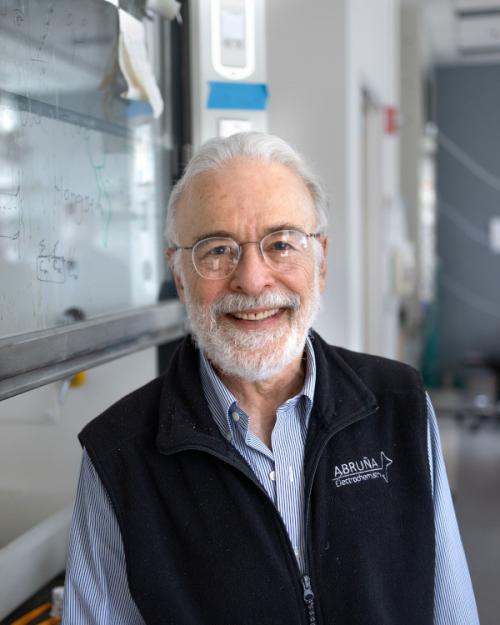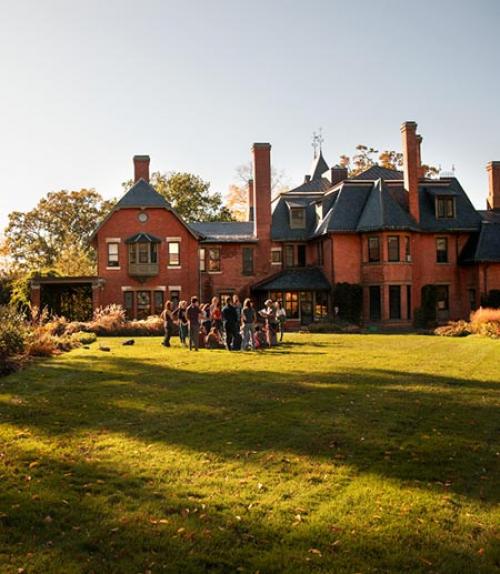A $6 million anonymous alumni gift will help launch the Humanities Scholars Program in the College of Arts and Sciences, offering a signature learning, research and collaboration opportunity to students from across the university interested in humanistic inquiry.
The initiative will offer gateway courses that will provide a broad introduction to the humanities for first- and second-year undergraduates. In the spring semester of their sophomore year, 30 students will be selected to join the program, where they will receive: mentorship from faculty and postdoctoral associates; grants for research and internships; space in the A.D. White House for collaboration; and workshops on research topics and professional skills.
The students also will take part in seminar courses, including one on research methods, making use of Cornell’s extensive libraries, museums, archives and other special collections. It will be the first time that undergraduates will be immersed in the work of Cornell’s Society for the Humanities.
“We are excited to offer Cornell students a thoughtfully curated pathway for navigating the humanities, and to highlight the excellence of humanities scholarship and teaching at the university,” said Ray Jayawardhana, the Harold Tanner Dean of the College of Arts and Sciences and professor of astronomy. “The Humanities Scholars Program will not only enhance research skills among the students, but also promote intellectual collaboration and strengthen the sense of community.”
The program culminates in a senior-level capstone project, for which students will conduct independent research on a topic of their choice, under the guidance and mentorship the program provides. The students will then present their work at a spring humanities scholars conference.
“This program will bring humanistic inquiry to all fields at Cornell and create a signature Cornell experience,” said Paul Fleming, professor of comparative literature and German studies and the Taylor Family Director of Cornell’s Society for the Humanities.
Fleming has spearheaded development of the program with Durba Ghosh, professor of history and director of feminist, gender and sexuality studies, and Verity Platt, professor of classics and history of art.
“When it comes to the big questions facing the world,” Fleming said, “it’s important that the humanities have a seat at the table.”
Fleming said he often works with students who are double majoring in a STEM field and a humanities field and are struggling to combine their research interests. The program will be open to students from all of Cornell’s schools and colleges, he said, as long as they have either a major or a minor in a humanities department or program in the College of Arts and Sciences.
For example, said Fleming: “As we move toward artificial intelligence and automatization, how will we define human dignity in the workplace? Human beings have tied their identity to their work, so how can we think about the future of work or one beyond work from a humanist’s perspective?”
“As the world gets more complicated and information more plentiful, it is critical that Cornell students have the opportunity to develop independent research projects in the humanities,” Ghosh said. “The College of Arts and Sciences is perfectly positioned for such a fantastic initiative. We have always had amazing humanities faculty and graduate students who do ground-breaking research. The hope is to bring together undergraduates who are curious and inquisitive and support them as they pose big questions and find their way toward meaningful responses to the futures we face.”
Platt also is director of Cornell’s CIVIC (Critical Inquiry into Value Imagination & Culture) project, an outgrowth of the radical collaboration task force for the humanities and arts set up by the provost. She said it can be a challenge for students interested in the humanities to find an identity at Cornell, especially as their career path might be less clear to them than for students in pre-professional programs.
“Through the Humanities Scholars Program,” she said, “we hope to give such students a sense of community and shared endeavor as they explore their intellectual interests, while helping them to develop skills in research and presentation that will be vital to them during their time at Cornell and beyond.”
The program is launching this school year, with gateway courses in both semesters and an application process for the first class of students in the spring. The first cohort of humanities scholars will begin their work next fall.
“This new program offers an excellent opportunity to highlight the importance of humanistic studies and to inspire students to take the broadest approach to their Cornell education,” said Provost Michael Kotlikoff. “I congratulate the faculty and leadership of the College of Arts and Sciences on creating and advancing this innovative program.”
This story also appeared in the Cornell Chronicle




